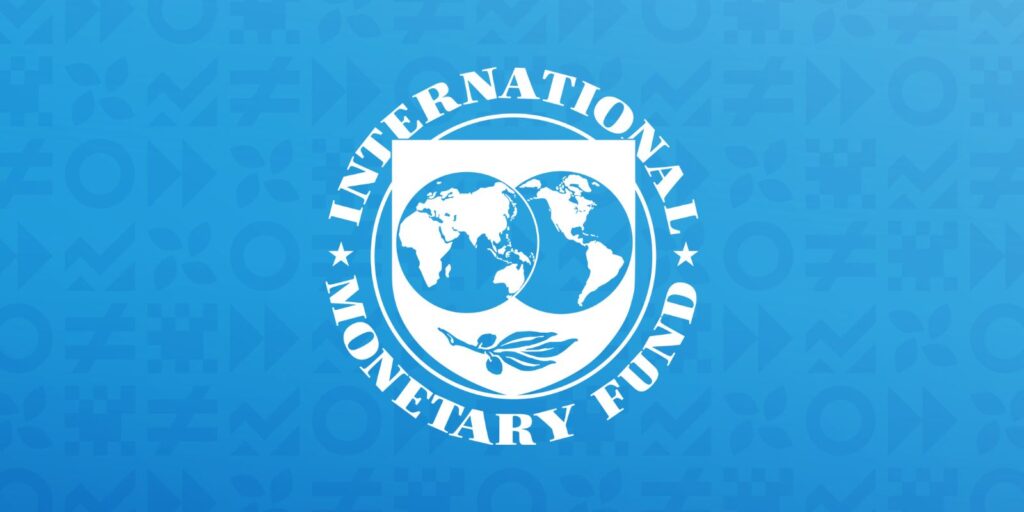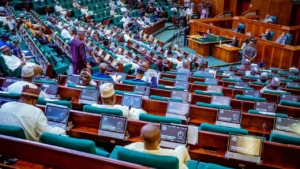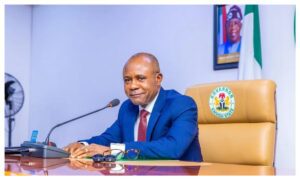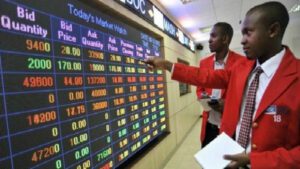The International Monetary Fund (IMF) has revised Nigeria’s economic growth forecast upward to 3.9 percent in 2025 and 4.1 percent in 2026, citing improvements in the country’s macroeconomic environment and supportive domestic conditions.
According to the World Economic Outlook (WEO) report released yesterday at the ongoing IMF/World Bank Annual Meetings in Washington D.C., United States, Nigeria’s economic outlook stands out positively amid global downward revisions for several economies.
The IMF explained that the upgrade was driven by factors such as higher oil production, improved investor confidence, a supportive fiscal stance, and stability in exchange rates and foreign reserves.
At a press briefing, IMF Economic Counsellor Pierre-Olivier Gourinchas said Nigeria’s growth outlook reflects encouraging domestic trends that contrast with the weaker performance of many global economies.
He stated: “Growth in Nigeria is revised upward on account of supportive domestic factors, including higher oil production, improved investor confidence, a supportive fiscal stance in 2026, and given its limited exposure to higher US tariffs.”
The report noted that while global growth is projected to decline slightly from 3.3 percent in 2024 to 3.2 percent in 2025 and 3.1 percent in 2026, Nigeria’s momentum remains strong, signaling resilience in Sub-Saharan Africa’s largest economy.
Cardoso: Fiscal and monetary reforms strengthening Nigeria’s economy
Governor of the Central Bank of Nigeria (CBN), Olayemi Cardoso, highlighted that ongoing fiscal and monetary reforms under President Bola Tinubu’s administration have significantly restructured the economy, making it more competitive and resilient against global shocks.
Speaking during the Intergovernmental Group of Twenty-Four (G-24) press briefing, Cardoso said the naira has become more competitive, and Nigeria now records positive trade balances.
According to him, major companies are shifting focus from imports to exports of locally produced goods and commodities, further strengthening the economy’s structure.
He said: “What is happening is a complete restructuring of the economy, where we are encouraging domestic production and discouraging imports. We now have a positive balance of trade surplus expected to remain at about six percent of GDP.”
Cardoso added that Nigeria’s early implementation of key reforms helped create “resilience and buffers against potential global shocks.”
Global outlook remains cautious
The IMF report observed that global trade dynamics and tariff uncertainties have reshaped international economic activity. It warned that while temporary factors have supported short-term resilience, risks remain tilted to the downside.
It stated: “Fiscal vulnerabilities, potential market corrections, and prolonged uncertainty could reduce growth. Countries should rebuild fiscal buffers, preserve central bank independence, and pursue structural reforms.”
G-24 Chairman Pablo Quirno added that developing nations continue to face slow growth, weaker trade volumes, and declining foreign exchange earnings. He called for stronger multilateral cooperation to cushion the impact of global trade tensions.
In Sub-Saharan Africa, growth is expected to remain stable at 4.1 percent in 2025, before rising slightly to 4.4 percent in 2026, driven by improving domestic reforms in key economies like Nigeria.
Stay tuned to 9am News Nigeria for more Breaking News, Business News, Sports updates And Entertainment Gists.
















